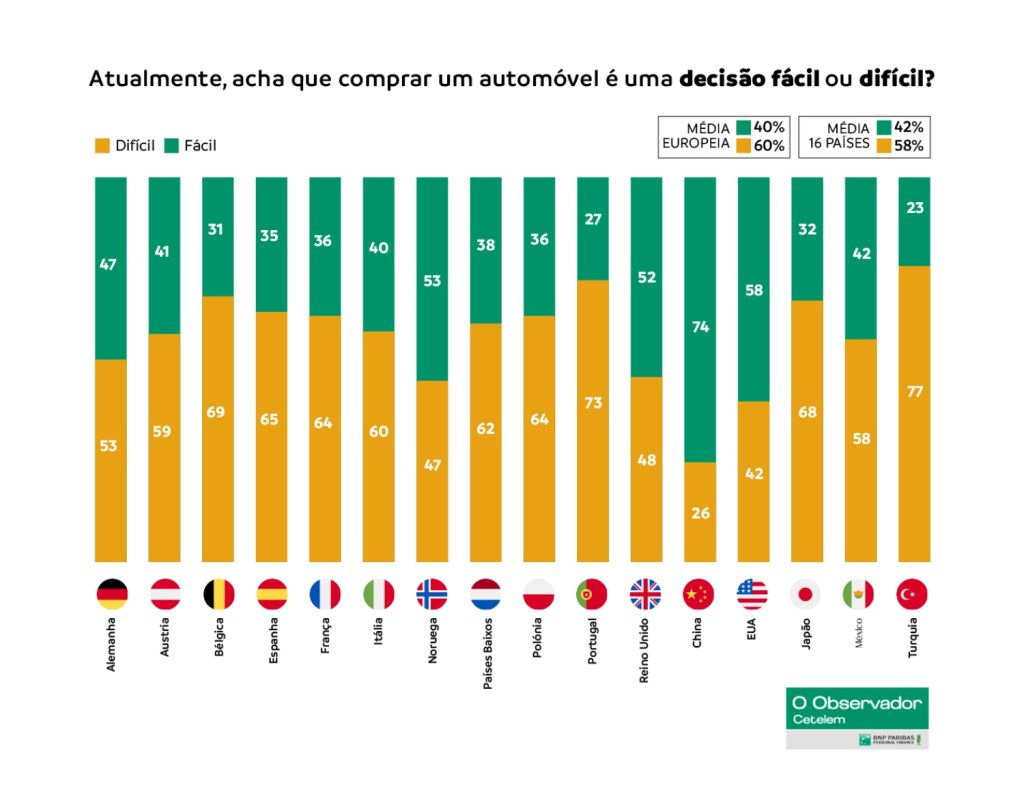The global economic uncertainty is affecting consumers’ decision to buy or change cars, with the associated costs being one of the biggest concerns.
The study revealed by “Observador Automóvel 2024”, conducted by Cetelem, part of the BNP Paribas Personal Finance group, shows that vehicle maintenance is one of the topics that most concerns Portuguese consumers (45%) and makes them hesitate to purchase a car; followed by the cost of fuel (38%); the decrease in purchasing power (38%) and associated taxes (32%).
In this context, 7 out of 10 Portuguese people think it is difficult to buy a vehicle, with 82% also anticipating an increase in the prices of new vehicles. Along with costs, Portuguese consumers also consider the decision to buy a car difficult due to the variety of brands and the proliferation of options available in the market. While a few years ago consumers’ choice was only between petrol and diesel, currently options also include electric, full-hybrid, plug-in hybrid, not to mention biofuels and residual hydrogen.

Therefore, only 17% of Portuguese respondents want to buy a car this year, with 7% intending to purchase a new one and 6% a used one. 42% of those considering buying a car ensure they will not do so in 2024 because they do not need a new vehicle immediately (42%) either because they do not have financial resources (41%) or are waiting for prices to drop (16%). Among those who say they do not want to buy a new car, 43% also justify it with a lack of financial resources and 47% say they do not need it. 15% mention uncertainty, whether about fuels or regulations in the future.
Nevertheless, due to the high costs of electric vehicles, the trend of Portuguese car purchases leans towards combustion cars (35%) compared to electric cars (28%). It is worth noting, however, that in 2023, the automotive market grew by 26% and more than half of new sales were of alternative energies, according to data from the Automobile Association of Portugal (ACAP).
The 2024 Observer Automotive Study was conducted in Portugal, Germany, Austria, Belgium, China, Spain, United States, France, Netherlands, Italy, Japan, Mexico, Norway, Poland, Portugal, United Kingdom, and Turkey, and a total of 15,000 people were interviewed online. Respondents, aged 18 to 65, were selected from nationally representative samples of each country.










